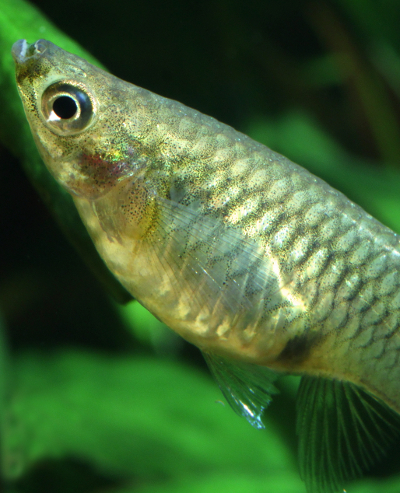Fish feeling drug runoff
 Fish are feeling the effects of modern pharmaceuticals.
Fish are feeling the effects of modern pharmaceuticals.
A five-year international study has found that low levels of the antidepressant fluoxetine, commonly known as Prozac, are rewiring the behaviour and reproductive traits of fish.
The research, led by Monash University and the University of Tuscia, focused on wild-caught guppies exposed to the drug, which often enters water bodies through wastewater discharge.
Published in the Journal of Animal Ecology, the study reveals the far-reaching effects of fluoxetine on aquatic ecosystems.
This pollutant is prevalent in rivers, lakes, and oceans worldwide, yet its impacts on wildlife have remained underexplored.
The research addresses this gap, providing a detailed account of how pharmaceutical pollutants disrupt natural processes in fish populations.
Dr Upama Aich from Monash University explained that even at low concentrations, fluoxetine significantly altered guppy physiology.
“Fluoxetine altered the guppies' body condition and increased the size of their gonopodium, while simultaneously reducing sperm velocity—an essential factor for reproductive success,” said Aich.
The study did not stop at physical changes. Behavioural plasticity, or the ability of guppies to adapt their behaviour to changing environments, was notably impaired.
“Fluoxetine exposure significantly reduced the behavioural plasticity of guppies, leading to a lower capacity of the individuals to adjust their own activity and risk-taking behaviours across contexts,” says Assistant Professor Giovanni Polverino of the University of Tuscia.
To investigate these effects, the research team exposed guppies to three fluoxetine concentrations - 0, 31.5, and 316 nanograms per litre - over multiple generations.
They monitored key traits like body condition, colouration, gonopodium size, and sperm characteristics, including number, vitality, and velocity. Male guppies were chosen for their sensitivity to environmental changes, particularly in traits linked to reproduction.
One of the most startling results was the breakdown of natural correlations between essential traits.
Normally, traits like activity level and body condition or gonopodium size and sperm vitality are closely linked.
Fluoxetine, however, disrupted these relationships, leading to unexpected outcomes.
For instance, the usual connection between a larger gonopodium and better sperm performance was severed, suggesting that the drug interferes with natural trade-offs between survival and reproduction.
The study's findings suggest broader ecological consequences.
“The disruption of behavioural plasticity and the altered correlations between critical traits could undermine fish populations' ability to adapt to environmental challenges, threatening their long-term survival,” warned Professor Bob Wong from Monash University.
Beyond reproductive success, the fish displayed reduced risk-taking behaviour, which could affect their ability to evade predators or exploit resources effectively.
These behavioural changes, combined with physiological alterations, signal a wider environmental risk posed by fluoxetine pollution.
The researchers note that this issue extends beyond guppies.
As fluoxetine and other pharmaceutical pollutants continue to infiltrate aquatic ecosystems, the long-term impacts on biodiversity and ecosystem health are likely to be significant.
The study calls for stricter regulations and more comprehensive evaluation of pharmaceutical pollutants' effects on wildlife.
The researchers stress the urgency of addressing pharmaceutical pollution.
“If chronic exposure to a common antidepressant can fundamentally alter traits essential for survival and reproduction, it raises serious concerns about the future of aquatic ecosystems,” Aich noted.








 Print
Print